2021 in Review: A Year of Innovation
The past year has been one of great change and innovation at Columbia Engineering. We embraced new ways of learning and rigorous safety protocols that allowed for exciting progress in research, learning, and collaboration and launched high-impact, visionary centers on AI-enabled climate projection, pandemic response, and carbontech innovations.
Through it all, our work has been guided by our mission, Engineering for Humanity, and elevated by the collective resilience, fortitude, and spirit of our community.
Here are some of our highlights of 2021.

A bumper crop of green tech
Professor Pierre Gentine is leading a new, visionary center for climate data science, Learning the Earth with Artificial Intelligence and Physics. This $25 million initiative, supported by NSF as a Science and Technology Center, marries machine learning with climate models to produce the kind of specific, near-term global climate change projections previously thought impossible. Meanwhile, eight startups developed in the lab, field, and even a sweltering dorm room have translated into applications that could deliver huge benefits to both people and the planet. Columbia has also launched a $10 million grantmaking and accelerator program to develop, commercialize, and scale technologies focused on carbon capture, utilization, and storage-related technologies that turn carbon into useful products.
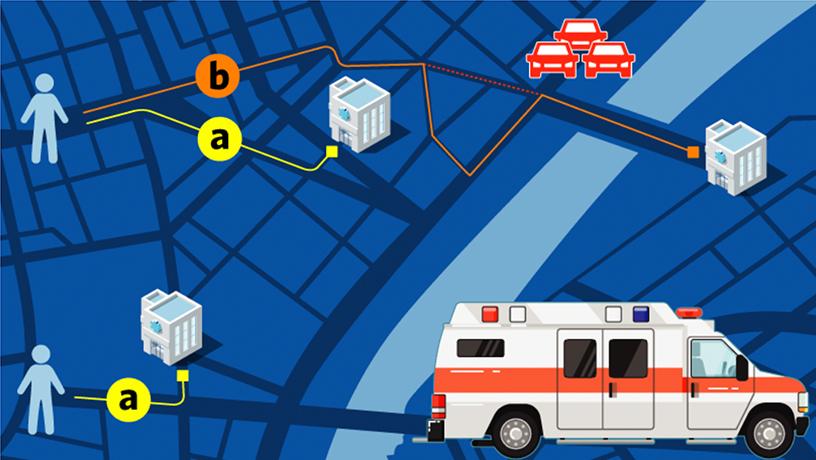
Responding to the pandemic with New York City
The School continues to be at the forefront of fighting the COVID-19 pandemic. New York City Mayor Bill de Blasio announced the City’s first Pandemic Response Institute, with Columbia Engineering as a key partner. Thanks to a new Urban Tech initiative, Engineering faculty are teaming up with University collaborators to generate solutions that can transform the city’s infrastructure and systems, define urban redevelopment, and minimize future disruptions—whether from the next pandemic, superstorms and sea-level rise, energy shortages, or other severe events or disasters. And finally, Columbia Engineering researchers teamed up with the Fire Department of New York to upgrade and optimize FDNY’s ambulatory response so that hospitals aren’t overwhelmed by patient surges like the one that occurred early in the pandemic.
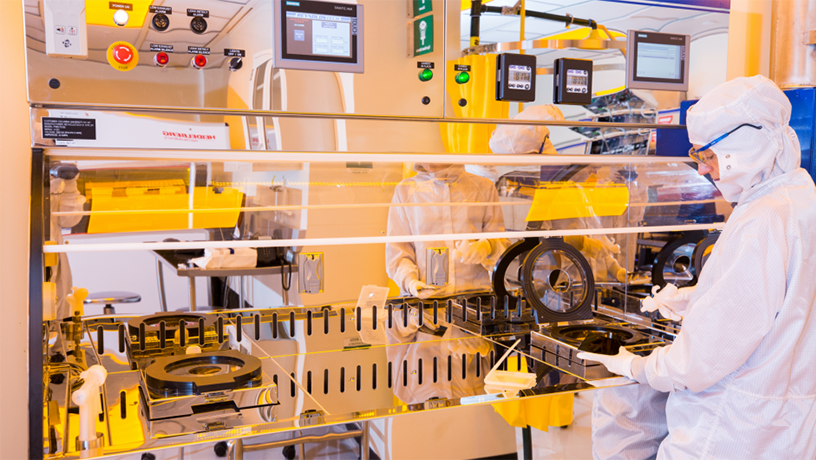
Innovation and entrepreneurship
It’s been a good year to be a Columbia Engineering entrepreneur. MixComm, a semiconductor company co-founded in 2017 by electrical engineering Professor Harish Krishnawamy, was acquired by Sivers Semiconductors for $155 million. Singular Genomics, which was founded based on DNA sequencing technology developed in Professor Jingyue Ju's lab, went public on the Nasdaq in May 2021. Columbia also launched the Columbia Startup Fellows program, which allows early-stage startups to conduct product-oriented research and development in available campus labs with access to special facilities, accelerating innovation in critical areas such as climate, energy, infrastructure, and materials. Students are making strides as well; Columbia engineer-led startup ColonAI won first place and $25,000 at the annual Columbia Venture Competition.
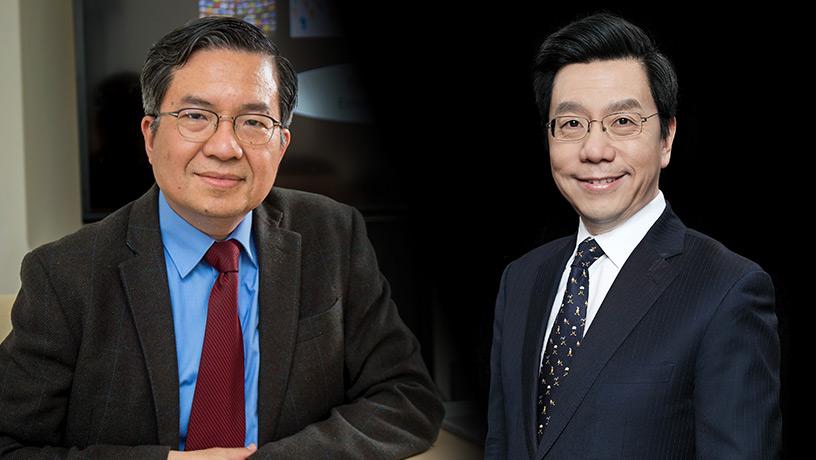
Great minds and new faces
Columbia alum and AI pioneer Kai-Fu Lee recently sat down with Columbia Engineering Interim Dean Shih-Fu Chang for a wide-ranging conversation touching on how AI might reshape our lives over the next 20 years. Meanwhile, Columbia Engineering welcomed two new key personnel who will implement the School’s plan to increase parity and inclusivity in academic, research, and outreach activities. Shavonna Hinton, our inaugural assistant dean for diversity, equity, and inclusion, wants to open up access in academia and beyond, while Kris Breton, our new director of outreach, is working to forge deeper connections between Columbia Engineering, the New York City community, and the STEM scene at large.
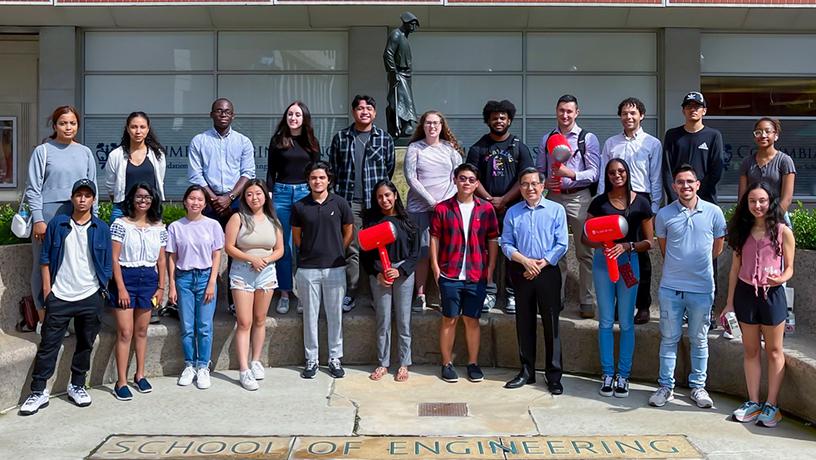
Inspiring the next generation of engineers
Columbia Engineering and Amazon expanded their ongoing collaboration by establishing the Columbia-Amazon Summer Undergraduate Research Experience program to give a leg up to undergraduate students from backgrounds historically underrepresented in STEM. Among this year’s cohort, 100% of those surveyed said they would recommend the program, which will be expanded to 50 fellows and five fellowships next year. The School also launched the new Alumbra Scholarship for Leaders in Engineering to support students actively engaged in Columbia’s Latino/a community, whether they are advancing research innovation in the lab or boosting representation on campus and beyond. And thanks to an Alfred P. Sloan Foundation grant, Columbia Engineering is officially partnering with Tuskegee University to create education and research opportunities that promote diversity in STEM at the graduate school and faculty levels.
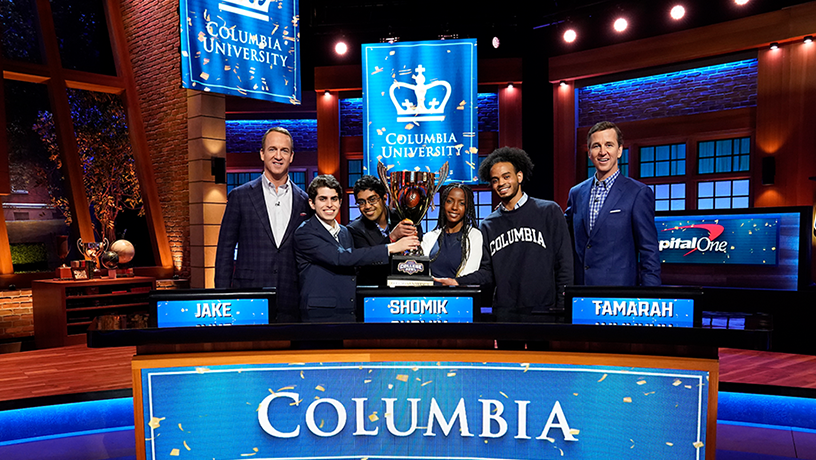
Accolades
In 2021, several Columbia engineers were again recognized for valuable contributions to fields ranging from computer science to medicine to quiz shows. Computer science professor Alfred Aho won the ACM Turing Award, and biomedical engineering professor Elisa Konofagou was elected to the National Academy of Medicine. And Columbia University’s College Bowl team—comprised of three engineering students and one from Columbia College—became the champions of the newly revived quiz team show on NBC.
